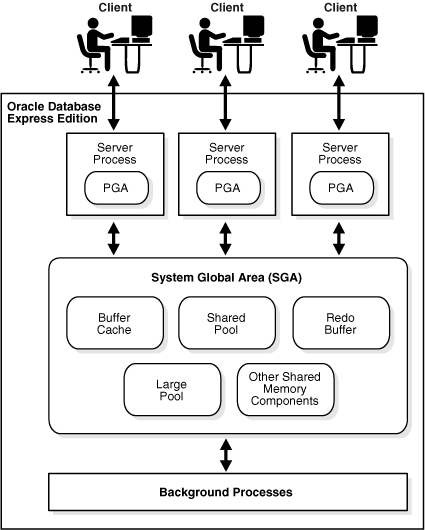Memory Allocation Overview |
 Previous |
 Next |
To support database operation, Oracle Database XE needs to start a set of processes, called background processes, and needs to allocate some memory in the host computer. The background processes and allocated memory together make up an Oracle instance.
There are two types of memory that the Oracle instance allocates:
-
System global area (SGA)—A shared memory area that contains data buffers and control information for the instance. The SGA is divided into separate buffer areas and data pools. These are described in "SGA Components".
-
Program global area (PGA)—A memory area used by a single Oracle server process. An Oracle server process is a process that services a client's requests. Oracle Database XE creates a new server process whenever it receives a new database connection request. Each new server process then allocates its own private PGA area. The PGA is used to process SQL statements and to hold logon and other session information.
Figure: Memory Allocation in Oracle Database XE illustrates memory allocation in Oracle Database XE.
The amount of memory allocated to the SGA and PGA directly affects the performance of your database. The SGA and PGA sizes are configured automatically when you install Oracle Database XE. See "SGA and PGA Sizes" for a discussion of when you might change them.
